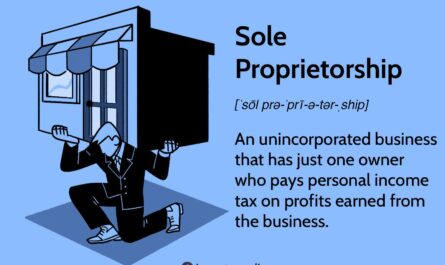The $16.25 billion Shuttered Venue Operators Grant (SVOG) program was established by the Economic Aid to Hard-Hit Small Businesses, Nonprofits, and Venues Act, which was part of the Consolidated Appropriations Act, 2021, signed into law on Dec. 27, 2020. Administration of the program falls to the Small Business Administration (SBA).
Effective Aug. 20, 2021, the SBA stopped accepting new SVOG applications. The SVOG portal , however, remains open for previous applicants and grantees.
The SVOG was amended by the American Rescue Plan Act to offer grants equal to 45% of an eligible venue’s gross earned revenue, with the maximum amount available for a single grant award set at $10 million. Eligible applicants with up to 50 full-time employees were able to draw from a reserve pot of $2 billion. After several delays, the SVOG program began accepting applications April 26, 2021.
The SVOG program got off to a slow start and by June 3, 2021, had awarded just 50 grants representing less than 1% of the 10,262 applications received by that date. As of Feb. 14, 2022, however, $14.12 billion in Shuttered Venue Operators Grants had been awarded with $14.06 billion of that total disbursed to the grantees. This represents 12,856 initial and reconsidered regular grants along with 9,142 supplemental grants for a total of 21,998 Shuttered Venue Operators Grants awarded by Feb. 14.
Key Takeaways
- The Shuttered Venue Operators Grant (SVOG) program, established as part of the Consolidated Appropriations Act, 2021, and administered by the Small Business Administration (SBA) to provide economic relief to shuttered live venues, began accepting grant applications on April 26, 2021, and stopped accepting applications on Aug. 20, 2021.
- The SVOG portal remains open for grantees to manage their grants and for existing applicants to await a decision.
- The program was designed to distribute more than $16 billion in grants of up to $10 million each, equal to 45% of an eligible venue’s gross earned revenue.
- Eligible applicants with up to 50 employees can draw from a special $2 billion reserve fund.
- Applications were sorted into three priority periods for venues that suffered COVID-related economic loss ranging from 25% to 90% or greater.
- As of June 3, 2021, the SBA reported that 50 grants, representing less than 1% of applicants had been awarded.
- Grant funds may be used for specific listed expenses only.
Eligibility for an SVOG
During the open application process, in order to be considered for an SVOG the applicant had to represent one of the following types of venue, as specified by the Economic Aid Act:
- Live venue operator or promoter
- Theatrical producer
- Live performing arts organization operator
- Museum operator
- Motion picture theater operator
- Talent representative
- Any subsidiary of an eligible entity that also meets eligibility requirements
- Any of the above operated by a state or local government solely as a venue
Feb. 29, 2020
To be eligible for an SVOG, the venue must have been in operation as of this date.
Ineligible Entities
Even if the venue would be otherwise eligible, it would not be considered for a grant if any of the following apply:
- It does not have a place of business located in the United States, does not operate primarily within the U.S., and does not make a significant contribution to the U.S. economy through payment of taxes or use of American products, materials, or labor.
- It was not in operation as of Feb. 29, 2020.
- It is a publicly traded corporation or is majority-owned and controlled by a publicly traded corporation.
- It presents live performances or sells products or services of a prurient sexual nature.
- More than 10% of its 2019 gross revenue came from the federal government (not counting disaster assistance).
- It owns or operates venues, theaters, museums, or talent agencies in more than one country; owns or operates venues, theaters, museums, or talent agencies in more than 10 states; AND had more than 500 employees as of Feb. 29, 2020.
- Five other firms with which it is affiliated have already received SVOG awards.
- It is a museum and other museums with which it is affiliated have already received $10 million in SVOG funding.
The Application Process
Potential applicants first were required to gather documents, register for a DUNS number, and register in the System for Award Management (SAM.gov). Instructions for the application process are found in the SBA Shuttered Venue Operators Grant Applicant User Guide.
Once registered, applicants were directed to the Main Shuttered Venue Operators Grant Page to apply. In addition to gross revenue loss from 2019 to 2020 to determine eligibility, applicants provided floor plans, contract copies, and additional information listed in the SVOG Preliminary Application Checklist.
At the end of the application process, applicants had to “submit” their application. Once done, they received notices by email regarding status and changes. Applicants were required to document the average number of qualifying employees they had over the previous 12 months.
Priority Periods for Grant Awards
The SVOG program established priority periods for the disbursement of grant awards, based on the percent of economic loss suffered by the shuttered venue. Those priority periods are discussed here and listed in the table below.
Within each priority period the SBA accepted applications on a first-in, first-out basis. Awards were granted beginning in May, 2021. The first 14 days were dedicated to entities that suffered a 90% or greater revenue loss between April and December of 2020 due to the COVID-19 pandemic. The second 14 days (days 15–28) included entities that suffered a 70% or greater revenue loss between April and December of 2020. The final period included entities that suffered a 25% or greater revenue loss between one quarter of 2019 and the corresponding quarter of 2020.
At that point supplemental grants were awarded to eligible recipients of first-, second-, and third-round awards that suffered a 70% or greater revenue loss for the most recent calendar quarter.
| Day | Priority Period | Entity Type |
|---|---|---|
| 1 | First | Entities that suffered a 90% or greater revenue loss between April 2020 and December 2020 due to the COVID-19 pandemic. |
| 15 | Second | Entities that suffered a 70% or greater revenue loss between April 2020 and December 2020 due to the COVID-19 pandemic. |
| 29 | Third | Entities that suffered a 25% or greater earned revenue loss between one quarter of 2019 and the corresponding quarter of 2020. |
| Supplemental | After all priority periods have passed, recipients of first, second, and third priority round awards that suffered a 70% or greater revenue loss for the most recent calendar quarter (as of April 1, 2021, or later). |
Source: Small Business Administration
Priority grantees do not need to satisfy the small employer set-aside rule (no more than 50 employees). Grantees that do will receive funds first from the $2 billion set aside.
Options Following a Decision
Applicants have three options after receiving a decision on their grant application—appeal, amount reconsideration, or supplemental award.
Appeal
If the application was declined, applicants receive an email and an update in the SVOG portal indicating they are eligible to submit an appeal. The initial appeal window lasts two weeks, during which time funding will be preserved. There is no guarantee that funding will remain available for applicants who appeal after the close of the initial two-week window.
Award Amount Reconsideration
If the award is at least $100 less than the Adjusted Proposed Grant Amount on the initial application, the grantee will receive an email indicating eligibility to apply for award amount reconsideration. This process also has a two-week window. Award amount reconsideration may adjust the amount of the initial award, so this process must be completed prior to evaluation for a Supplemental Award.
Supplemental Award
If an initial SVOG is awarded, the grantee will be asked to update their 2021 earned revenue in order to be considered for a Supplemental Award. To do this, grantees should log in to the portal and update through that action item within two weeks.
Reconsideration 2.0 is not available to declined applicants.
Reconsideration 2.0
Once Supplemental eligibility has been processed, Grantees will be invited to request one final opportunity to apply for Reconsideration of their Award Amount. Grantees will receive an email notification of a new Action Item available through their applicant portal inviting them to ‘Apply for Reconsideration of your SVOG Award Amount’. This Action Item allows a grantee to correct any potential errors on their initial SVOG application which may have decreased their expected award amount.
How SVOG Funds May Be Used
SVOG funds may only be used for the specific purposes listed below. Grantees are required to maintain documentation demonstrating that they have complied with these uses. Further, grantees must retain employment records for four years following receipt of funds and must retain all other records for three years.
- Payroll
- Rent
- Utilities
- Mortgage payments (not including prepayment of principal)
- Debt payments (not including prepayment of principal on any indebtedness incurred in the ordinary course of business prior to Feb. 15, 2020)
- Worker protection expenses
- Payments to independent contractors ($100,000 or less per contractor per year)
- Other ordinary and necessary business expenses, including maintenance
- Administrative costs (including fees and licensing)
- State and local taxes and fees
- Operating leases in effect as of Feb. 15, 2020
- Insurance payments
- Advertising, production transportation, and capital expenditures related to producing a theatrical or live performing arts production. (This may not be the primary use of funds.)
How SVOG Funds May Not Be Used
Grantees may not use SVOG funds for any of the following, including any other use prohibited by the SBA:
- Purchase of real estate
- Payments on loans originated after Feb. 15, 2020
- Investments or loans
- Contributions or other payments to—or on behalf of—political parties, political committees, or candidates for election
- Any other use prohibited by the administrator
Are Shuttered Venue Operator Grants still available?
As of Aug. 20, 2021, SVOG applications are no longer being received. Previous applicants who have not yet received a decision are still under consideration and current grantees can manage their grants through the SVOG portal.
Can you use a Shuttered Venue Operators Grant to make a loan to an artist?
SVOG funds cannot be used to make loans.
How long must I retain employment records if I receive a Shuttered Venue Operators Grant?
You must retain employment records for four years after initial receipt of funds. All other records must be retained for three years.



